
VISIBLE MAGAZINE
Created by Sammy Noelle Photography by Sammy Noelle
Written Pieces by Des Dare Barragan & Sammy Noelle
001
Rehumanizing your city through the art of telling stories
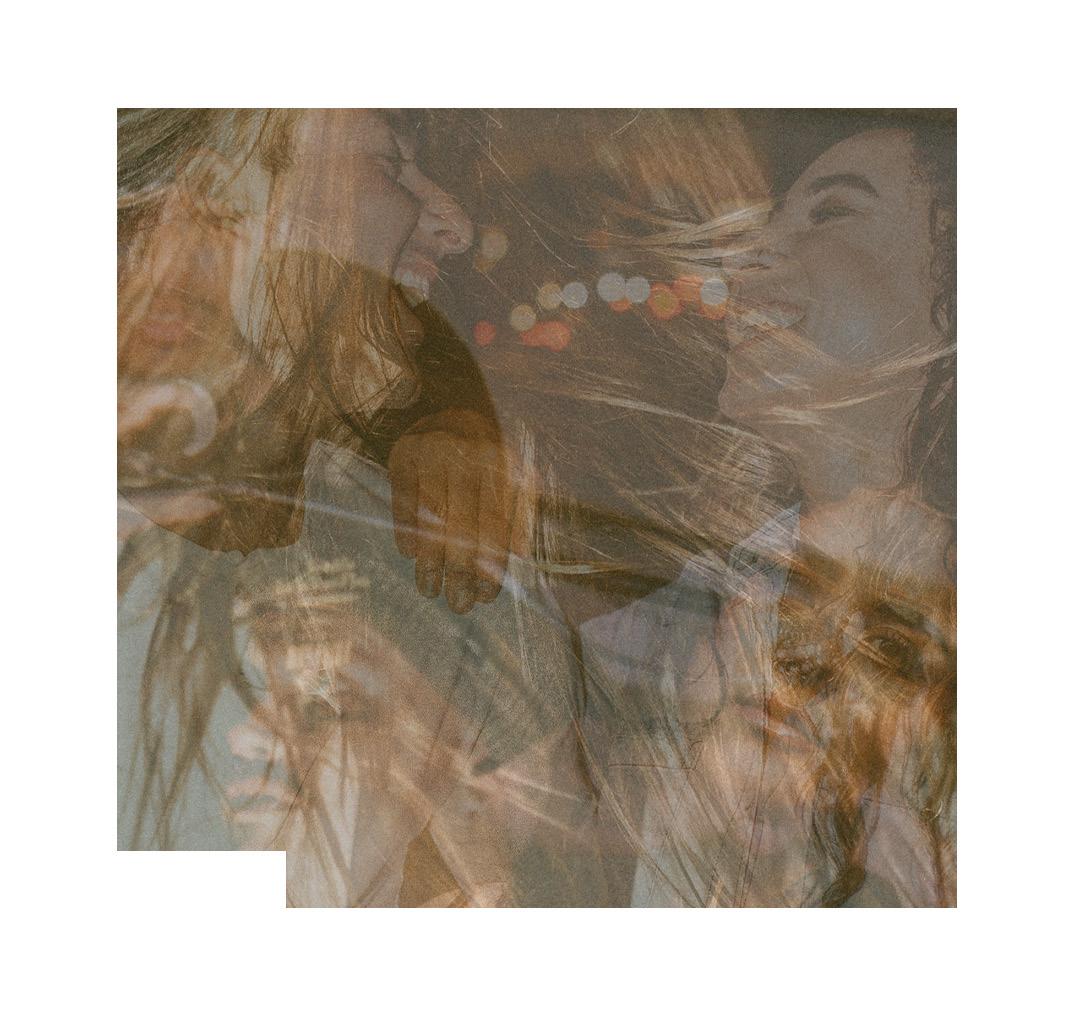
002
TABLE OF CONTENTS
Page 004 About Visible Page 007 SD Sonics featuring amm Page 015
Behind The Brand featuring Joel Poirier of Firelink Management Page 021 “Meeting Grief” by Des Dare Barragan Page 022
Better Together featuring Shua & Studio Casually Page 027
Common Strangers featuring Anahi Gutierrez Page 031
To The Table featuring Chris Yerikian & Valerie Urrutia of Surje Coffee Co.
003
WHAT IS VISIBLE?
a locally based magazine intended to highlight the human beings that live, love, create, and work in the city.
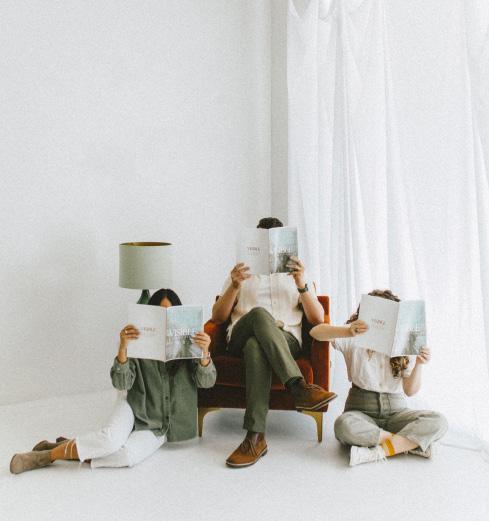
WHY VISIBLE?
we all crave to be seen by others as a way to find real and tangible connection, where one is known deeply and fully.
Visible Magazine started to rehumanize a city, to breathe life back into a city by shedding light on stories of the human beings we pass by every single day.
WHO IS VISIBLE?
a team of individuals who really love their city and really love people.
004


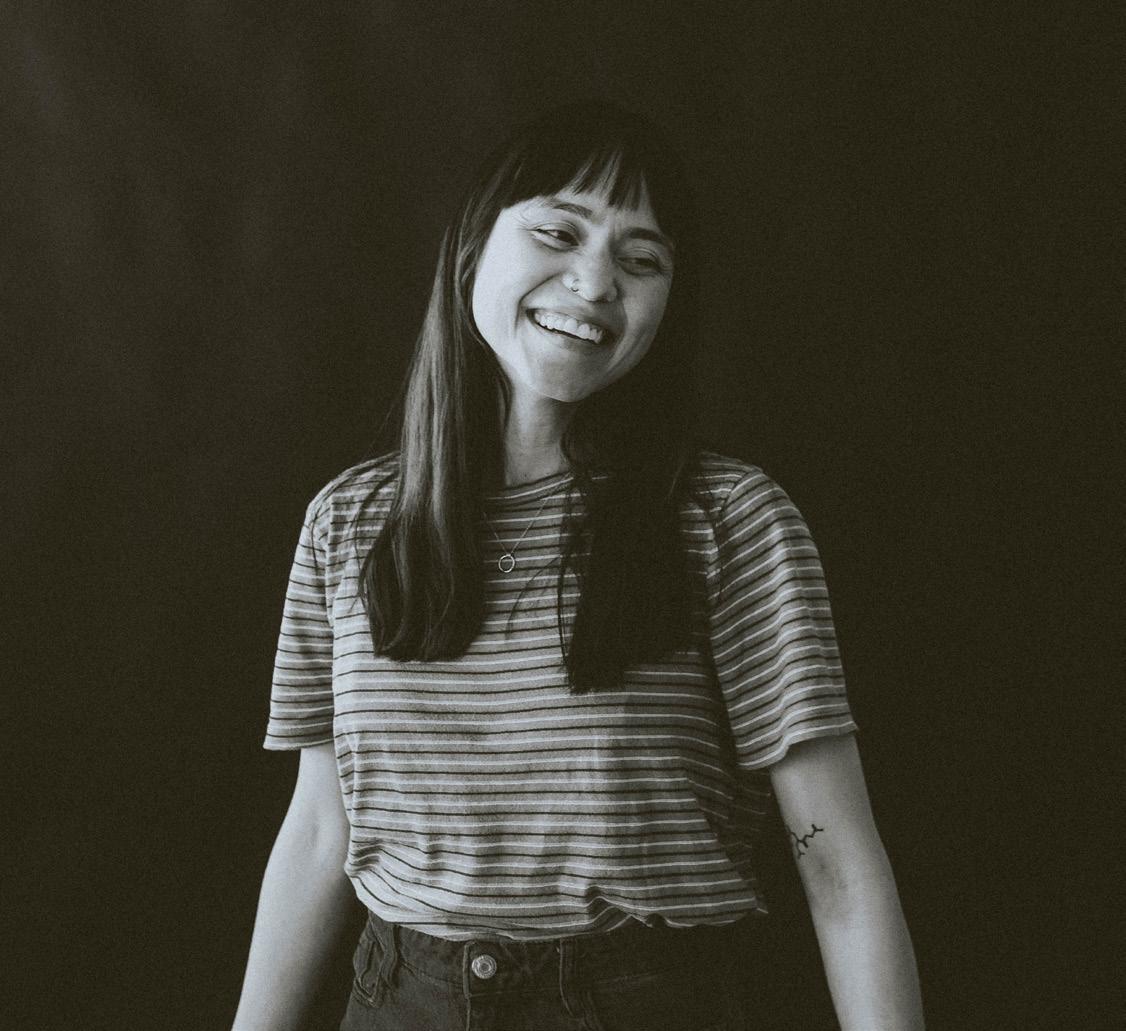

005
scan here to learn more about our team
NICE TO MEET YOU AND THANK YOU FOR YOUR SUPPORT

To stay connected, follow us on Instagram @thevisiblemag and share your Visible moments with us #VisibleSD

006 SABRINA ROUNDS Communications/Social Media Instagram | @sabroonds
THE VISIBLE TEAM INCLUDES
Editor-In-Chief/Photographer Instagram | @sammynoelle
Lead Writer Instagram | @desdare
SAMMY NOELLE
DES DARE BARRAGAN
SD SONICS
FEATURING AMM
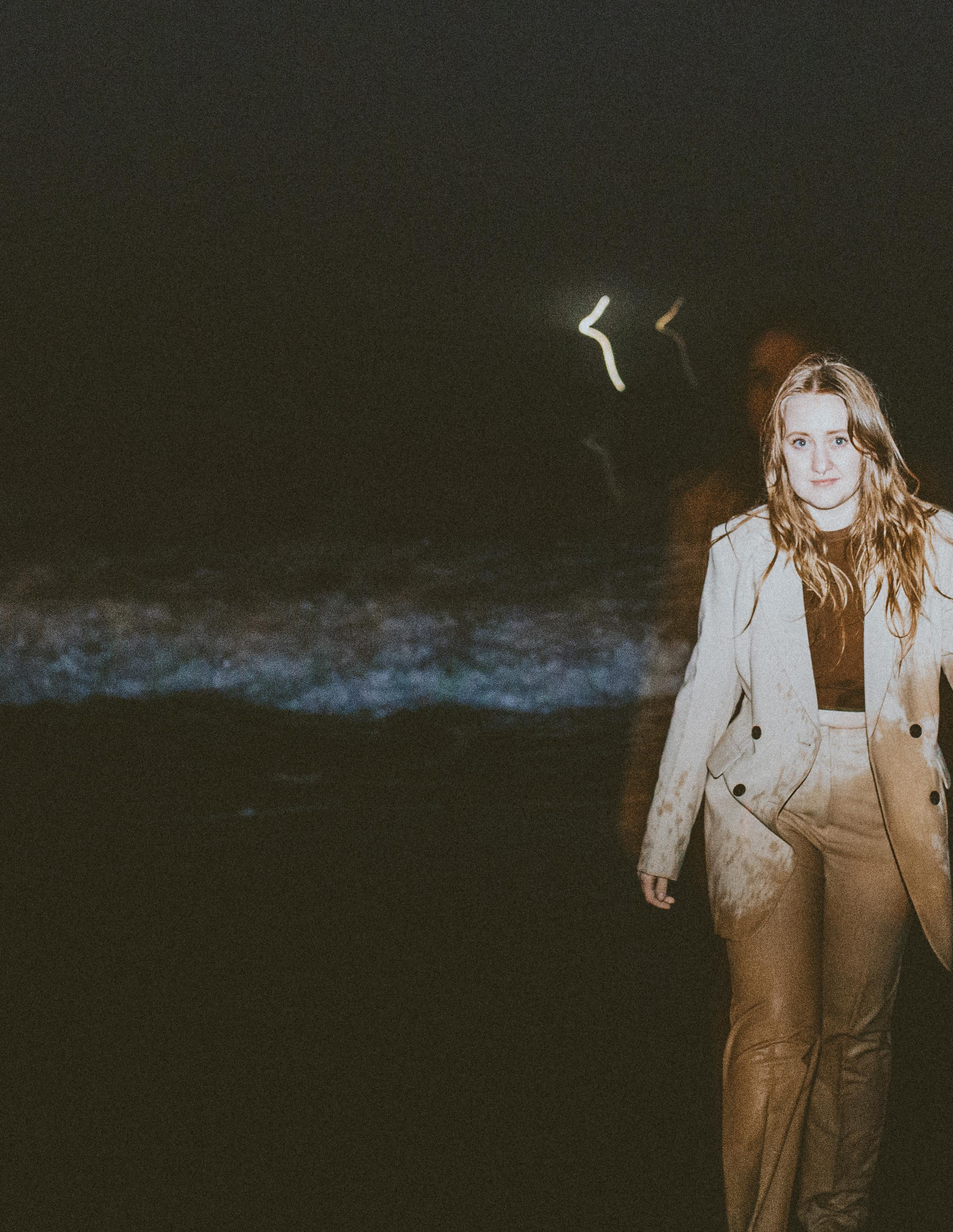 Written by Sammy Noelle
Written by Sammy Noelle
007
This is what Amaris, stage name “amm,” said when asked what she’d like people to get out of listening to her not-yet-released EP, and it’s rather telling of her heart and personality. But before we dive into the deepest parts of amm’s journey through life and creativity, let’s rewind to the beginning of our conversation together.
amm walked through the door to talk with us freshly off work, and once she had a cup of instant coffee in hand, we sat down to press record. With a drumroll, we introduced Amaris and started the conversation with a quick “How are you?” to which she responded, “It is going pretty good, I think.” When asked why the addition of “I think,” her honest and witty yet lighthearted response was, “Well, I don’t know if I had time to think about that answer, but I’m pretty sure it’s going good. There’s no emotional backlash from today, so I’m chillin’.” Insert all of us cracking up.
This is Amaris. If you can’t tell already, she’s a person who says what she thinks and what she means. She’s intentional, honest, hilarious, and not the type of person to be someone she’s not. Unless it’s her telling us she’s from somewhere she’s never even visited.
“All the things about yourself go out the window as soon as somebody asks you. You’re just like, ‘I’m from Nebraska. No, I’ve never been there before in my life!’”
Amaris is actually from Florida, but she relocated to San Diego ten years ago for a gap year program before college and has been here ever since. In her words, “I was like, ‘Eff it. I’m gonna stay,’ and then I didn’t go to college!” As she continued, she briefly mentions the difficulties that came with living 3,000 miles away from her hometown in the midst of figuring out who she was as a person and navigating through her twenties.
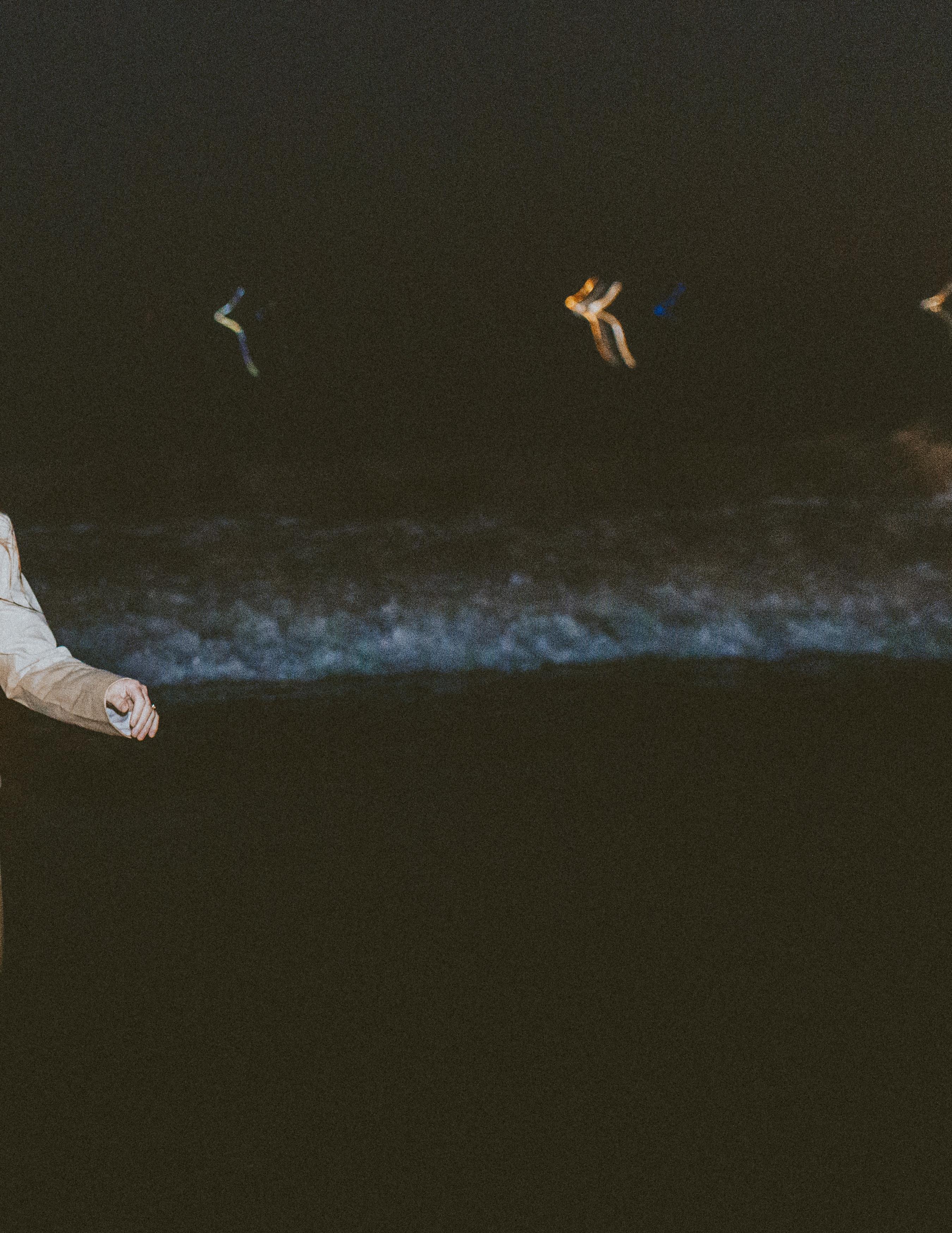
008
“I JUST HOPE PEOPLE UNDERSTAND THEY AREN’T CRAZY.”
Over the past 10 years, Amaris has had several jobs, one of them being a data entry job on the naval base, where she worked for three years. After those few years, she woke up one day and realized that she didn’t want to be doing what she was doing for the rest of her life. So, she quit. As someone who describes themselves as always having a backup plan, this was quite out of the norm for Amaris. And yet, from her out-of-the-ordinary decision-making strategy came a whole different world of opportunity.
After leaving her job, Amaris went on to get three more separate jobs, along with volunteering for a non-profit called David’s Harp, an organization to help at-risk youth move toward academic success by educating them in music and audio production. When she first started at David’s Harp, Amaris states she was brought into the studio, told which button to press to record, and then told to “have a great time!”
So with little to no knowledge of audio production, she stepped right in and chose to figure it out, and it just so happened that the first student she ever worked with started their time by saying, “Let’s write a song!” In Amaris’ words, “That’s all I knew how to do.” She knew nothing about audio production, and yet Amaris tells us, “A bunch of YouTube tutorials later, and here we are.”
Amaris also attributes her growth in the field to the people she works with. “I work with a lot of seasoned audio engineers and producers, so if I had specific questions, I could go to them, but there wasn’t formal training.” She explains how her getting hired at David’s Harp as someone without any experience was a rare occurrence. “They usually hire people who know their stuff. But they knew me since I moved here, and first and foremost, they knew I cared about their demographic.” Amaris continues the thought by saying, “It’s hard to find a musician who cares not just about their music but the wellbeing of other people. I think that’s one of the biggest reasons they hired me because I cared about their demographic of people.”
With a heart for others and a love of music, Amaris figured the rest out as she went.
Over the pandemic, Amaris left her other three jobs and began working more hours with David’s Harp, and now is in a fulltime position at the nonprofit. Even as someone who is prone to get bored being in one place, job, or circumstance for too long, Amaris says that David’s Harp, while it’s one place, doesn’t feel like the same thing every day. “It’s actually widely different every day, which is probably why I’m not freaking out as much being there.”

009
Music was a consistent but sometimes hidden love for Amaris.
Her first instrument was the piano, and her piano teacher was her mother. A sweet sentiment? Absolutely. A complex relationship figuring out how to view one person as your mom but also your teacher? Without a doubt.
Amaris talks about how back then, and even to this day, music theory isn’t quite her jam. She prefers the mindset of, “Why can’t we just flow and play by ear?” Which led to some, as Amaris says, “lowkey frustration” from her mom.
Eventually, at age 10, she journeyed to try something new, the cello. For a moment, just imagine little 4’10” Amaris behind this giant stringed instrument that is bigger than her. As Amaris struggled to lug around this monster of an instrument for the first five years of playing, she explains that the biggest hurdle of this new musical endeavor at times was her relationship with her teacher, who was, you guessed it, a cellist.
“I don’t think she was wrong. I just don’t think I was motivated by the same things my mother and this teacher were using. To me, all of their teaching methods I internalized in shame at that time as a kid. Which wasn’t necessarily their fault.”
Amaris goes on to say that it was more of a difference in communication style. “I don’t think they were doing anything wrong, nor did they have intentions to do so,” she explains thoughtfully.
Her journey with the cello lasted about 10 years, and throughout those years, more tension was added to her relationship with her teacher because she never practiced. And to be honest, her reasoning has some logic to it.
“In my head, I was like, ‘Well, if I practice and you still have something to say, then I’m going to feel like a huge disappointment. So, I’d rather know that I’m disappointing you upfront and know that I’m doing it on purpose instead of you criticizing me for even trying.”
After retiring from her cello career, Amaris shares that she decided to give up on music as a whole. “It was too much of a shameful thing,” she says, but it was nowhere near the end of her music journey.
As she talks about leaving her hometown and moving to California, Amaris mentions, “Nobody knew I could sing; I’d never done it anywhere. That was not a thing I did in Florida.”

It wasn’t until 10 years ago, at a camp, that Amaris sang in front of someone for the first time. In the middle of a field, Shua, who we know and love, was sitting and playing guitar. “I just sat by him, and we were singing for fun. And he was like, ‘WHAT?’ and that’s how it started.”
Shua expressed to Amaris that this is something she needed to be doing, to which she was shocked, but she shares that over time it’s been something that she feels is a part of her, and she can’t stop doing it. Amaris tells us, “I think I just had to learn how to navigate feelings of shame attached to it. And that’s probably why it took so long to do anything about it.”
Amaris dabbled in songwriting for a while, but her music journey really started to form together when she met musician and her now husband, Lee. Their relationship was filled with conversations about creativity as a whole and what the creative process would look like for her to begin releasing music as an artist. Through these conversations, the potential of creating music and putting it out in the world began to be a normalized thought for Amaris. But not without internal tension, of course.
“I’ve always loved consuming music, and felt like I had pretty decent ideas sometimes, but never fully saw those ideas to completion. Because I was either like, ‘I don’t have enough time,’ or feeling like an imposter, like, ‘I can’t actually do this. That’s really great for those people, and that would be awesome to do one day, but I don’t have the capacity or gifting to do that.’” She explains how she would get caught in convincing herself of this over and over.
But even in the midst of her battle with insecurity, Amaris found eventual comfort and confidence in her and Lee’s conversations.
010

011
“He was kind of like, ‘It’s all in your head. And if you want to do it, do it. Nobody’s your gatekeeper.’”
These conversations were just the start of this couple coproducing the music that is now tied to the name amm.
While at times she’ll bring in friends to record parts here or there, Amaris confidently explains that a good 90% of the production is done by her and Lee. And not only were the two of them learning to create music together, but due to the pandemic, the two eventually learned the art of an at-home studio setup, and Amaris shares that some of the most integral parts of the songs on her upcoming EP, There’s A Fog In My Apartment, were recorded on an unsuspecting two-input interface.
Even in the middle of learning the logistics, Amaris is thoughtful in the way that she handpicks what she puts out in the world.
“IT’S REALLY IMPORTANT FOR ME NOT TO FORCE ANYTHING EVER. I MEAN, I’M DOING THIS FOR FUN, REALLY. IT’S NOT SOMETHING I GET PAID TO DO, NOR IS IT MY FULL-TIME JOB. I’M KIND OF JUST DOING IT TO RELEASE CREATIVE ENERGY IN THE SENSE THAT I REALLY CAN’T STOP MAKING STUFF.”
With a mixture of nonchalance and weight in her tone, Amaris elaborates, “It has to go somewhere, you know what I mean? And then, hopefully, if I share, it will better the people that hear it. Or else I’m not going to share it.”
I reiterate, Amaris is INTENTIONAL. Intentional to the point of allowing her art to take form in the best way it can, even if it takes two or sometimes four years for that art to show itself in the world. Even when she may not realize it at the start, her art and creative process carry the strategy of putting together puzzle pieces that were absolutely made to go together.
When we asked her about the songs and process of her upcoming EP, Amaris shares her realization that “All of these songs tell this story of what I’ve been living through and processing over the last two years, and I didn’t even know.”
With the newness of a recording coming to completion and getting ready to release it to the world, Amaris also just had her debut show near the beginning of November. While it’s an exciting feat, she explains the amount of pressure that she felt anticipating her first live show. Like a lot of things in life, the lead-up to our greatest moments can trigger the largest insecurities that we have been facing for years of our lives. And Amaris’ experience emotionally and mentally showcases the reality of being a growing human being who is choosing to learn how to navigate the difficulty with ease.
AS WE DOVE A BIT DEEPER, AMARIS PROCESSES, “I’M EXPERIENCING SHAME BECAUSE I BELIEVE I ACTUALLY HAVE TO HOLD UP THE GLOBE, AND IT’S REALLY NOT THAT DEEP.”
012
As Amaris lets us into her inner dialog, she shares how she reminds herself, “If God made this whole EP through you, and you had no idea what the fuck you were doing, I think you’ll be fine.”
And that brings us to what she wants to leave readers with. “I just hope people understand they aren’t crazy. Pain is just messy sometimes, and that’s just what it is.”
Amaris’ story tells of a strength that comes from letting life happen and making decisions that can change the narrative and trajectory of your life.

As we wrapped up our evening and conversation together, Amaris left us with a beautiful picture of what it looks like to be human.
“YOU HOLD SHAME AND GRACE TOGETHER YOUR WHOLE LIFE AND TRY YOUR BEST TO OPERATE IN ONE BUT NOT THE OTHER. I JUST HAVE TO FIND THE CAPACITY TO LIVE IN GRACE AND NOT THE OTHER.”
Follow amm Instagram | @amarisrenae Listen to amm’s latest music on all streaming platforms.


014
THE VISIBLE PODCAST wherever you listen to your podcasts scan to listen now
BEHIND THE BRAND

FEATURING JOEL POIRIER of FIRELINK MANAGEMENT
Written by Des Dare Barragan
015
With many moments like his introduction, interviewing Joel was a morning filled with coffee, laughter, refreshing insight, and inspiration.
Joel Poirer is the founder and “we” of Firelink Management, a media management company encompassing everything from podcast audio engineering, video editing and website upkeep. The name Firelink was inspired by the video game, Dark Souls, wherein characters meet at the Firelink Shrine to find refuge and safety. As a player in the game, you get to help those who are not powerful or brave enough to venture out alone and, together, reclaim their stories. “It is definitely a place that has always stayed in my mind. You’re able to help them finish the task that they just weren’t able to do.” This idea has been brought to reality in Firelink Management, as Joel offers services for the tedious editing that often discourages people from sharing their stories with the world.
Joel has been in the audio and video production industry for ten years and has been a huge fan of creative writing and film since high school. It was in his tenth-grade English class that an Alfred Hitchcock assignment resulted in great praise from his teacher and classmates. This was the first time he was affirmed in his gift for creative writing. Despite Joel’s parents wanting him to focus on a more practical profession, the fire for creativity was sparked and would never leave him.
From there, Joel jumped into film, editing videos for people, doing some acting as a stunt guy, and even destroying his vocal cords, screaming for a band with his friends. Joel shares that after a creative hiatus, it was a conversation with friends Ryan and Evan that brought him back to film and made his art a priority.
At the time, he was cleaning pools for a living. It was a job he enjoyed and one that sustained his family, but it wasn’t fulfilling in the way he wanted. Joel got word of a local film festival where contestants were given a randomly selected prompt and 90 days to write, direct, edit, and film. He had to discover discipline for himself and began the practice of waking up at 5:00 am to write. Waking up at that time gave him enough time to make coffee and have a solid hour of writing before starting his pool job. This routine satisfied his need for creativity and made his pool job and the daily things of life less stressful; he simply had more of himself to give.
“I felt like I was doing something, creating and working towards a goal of mine, even though I was still at a job that I might not be like this is it, this is where I’m going to be forever.”
Joel reminds us that we control how we spend our time and how purpose is found when we shift the time we can towards the things that give us life.
“EVEN WHEN I’M TYPING UP BIOS OF MYSELF, I’M LIKE, ‘WE AT FIRELINK…’ AND I’M LIKE, IT’S LITERALLY JUST MYSELF, WHY AM I TYPING WE?!”
016
Part of that shift is identifying what you can do without. “I was a pretty heavily drinking individual back in the day. I was so afraid to give up drinking because I was like, ‘Well, it’s what I use to help me create,’” but Joel realized that wasn’t true, and he was using creativity as an excuse to keep an unhealthy habit. Joel models that building one dream in the midst of another or in the midst of whatever you’re doing right now is a gradual process that requires care and honesty with your clients and within yourself.
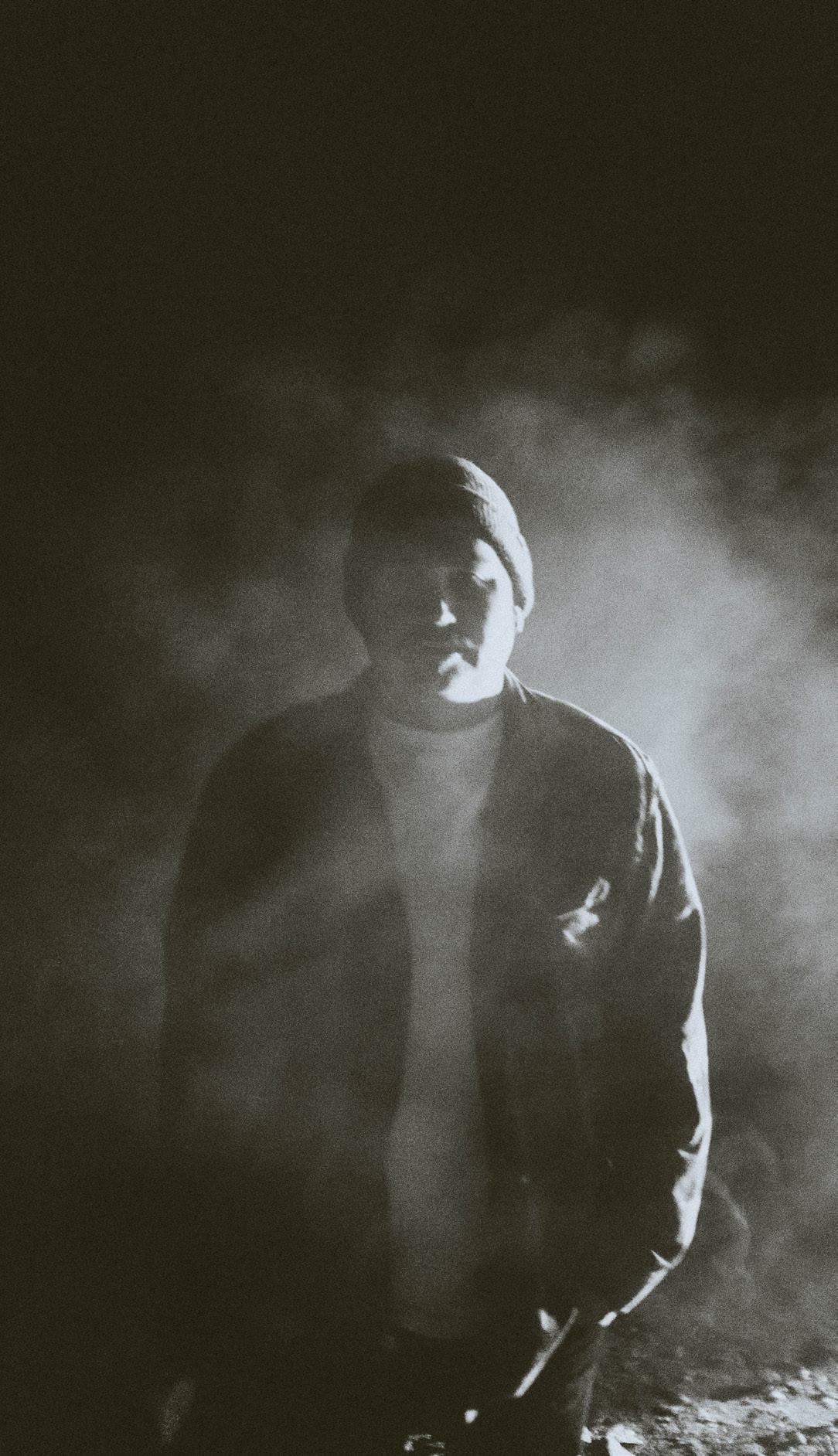
When COVID hit, Joel was unemployed with a baby on the way, and enrolled in a coding boot camp with the hope of making money doing something creative. No stranger to the battle with deep depression, Joel found feelings of failure overwhelming, and it was his friend Mark who presented advice in storybook terms that Joel would hold onto. “What if you looked at failure as a rival instead of as the enemy?” You may not get on well with a rival, and it can feel bad when you’re beaten down, but Joel presents that “rivalry is what makes you stand up and go further,” and a life absent of hardship is a life lived within limitations. Oftentimes what’s forged in hardship and tension makes us stronger for what’s to come. The next thing for Joel was Firelink Management.
“I think the biggest victory is starting the business,” chuckles Joel with transparency in his voice. After experiencing business failure in the past, Joel used what he’s good at to determine the direction and audience of Firelink. “I’m a good storyteller, I believe that I truly can empathize very well with people and live what they’re saying to me, their story, and be able to push it out into the world in a more creative way.” Joel loves the work of video and audio editing, storyboarding, and crafting elements of a story together, but the business of his business comes into play with maintaining a billing system and establishing things like contracts and California self-proprietor taxes. Keeping a successful business requires him to grow in the areas of scheduling, time management, and a balanced pace between projects.
When asked if he could leave one thing with our readers, Joel responded, “I think the biggest thing truly, is to surround yourself with people who will push you to do the creative thing that you love.” Joel explains that these are people who won’t shut you down but will give honest feedback about your skill sets and your weaknesses. “We’re human, we all have weaknesses, and we’re not perfect at everything. We can usually, I’d say maybe always, grow.” Joel’s growing in his fight against feelings of comparison: “It’s a struggle for all of us, it’s human nature to see maybe someone starting something, and maybe they’re more successful in it than you, and you’re just like, ‘that should be me.’” He tells us how beneficial it is to have others who are genuinely excited about your level of success, no matter their own level. Joel sums it up with a shout-out to having a good partner who allows you to flourish on your own but also steps in to push you into your potential. “Starting a business is kinda rough. Having a kid and starting a business feels rougher. My partner in crime is helpful and encouraging, and it is a very enjoyable experience to have. I feel like I am able to do it, I genuinely don’t think I would if I did not have friends to push me to do it and if I did not have a partner to do it alongside me. It’s immeasurable how helpful it is.”
017
Whether it’s living out his imagination with his son, writing scripts, or editing content, Joel will always tell stories.
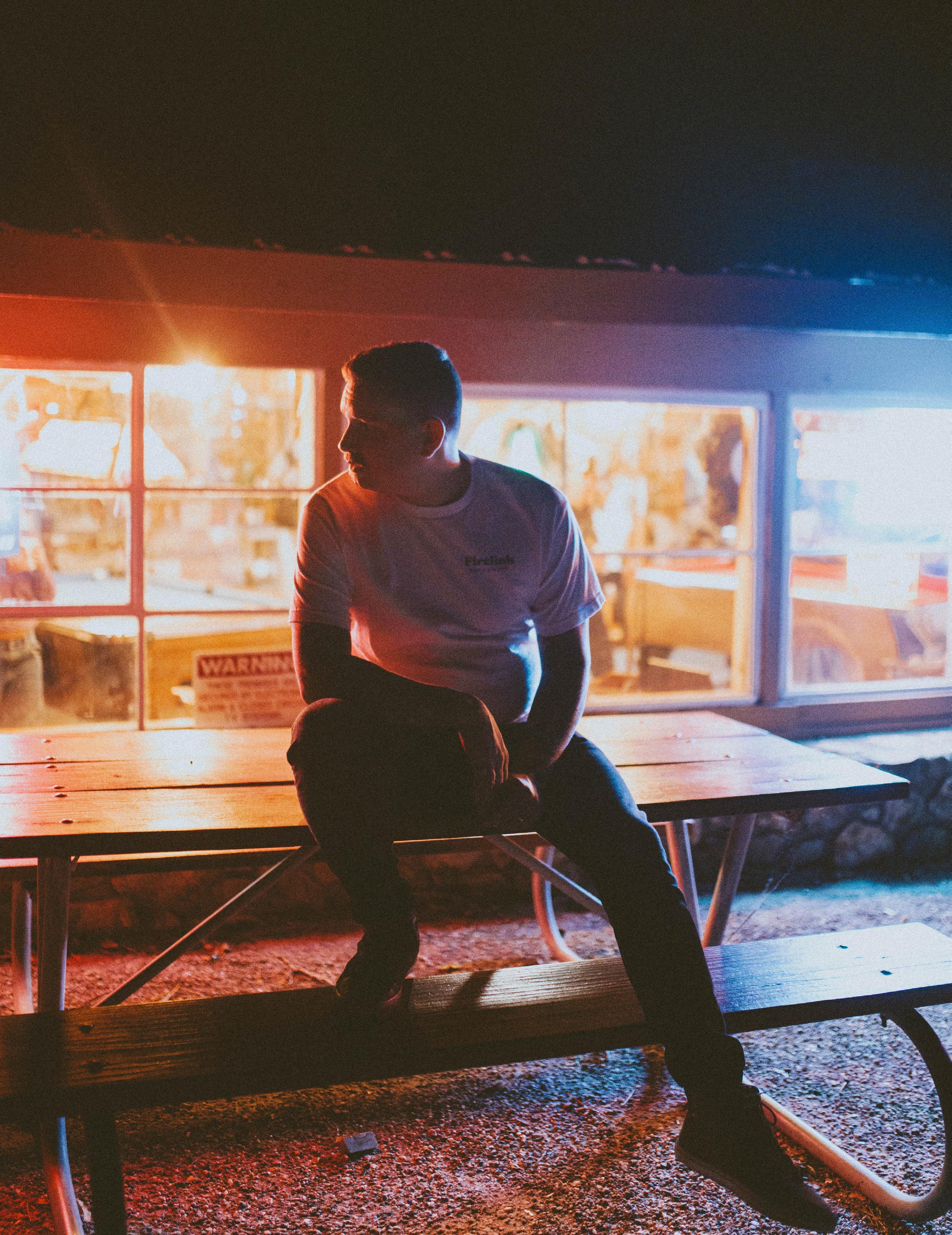
“I would love to work with you. I would just love to create with you and tell the world about your story. Because it matters, you matter, and your story matter.”
Follow Joel & Firelink Management Instagram | @firelinkmanagement Website | www.firelinkmanagement.com
MEETING GRIEF
Written by Des Dare Barragan
Disguised in blue dolphins and techno beats, Addicted to feeling the way I wanted to be I ran from true love and all reality, I was only sixteen when it met me.
I woke up today, With my heart in two One piece remains here, The other, taken with you
It looked quite the same at age twenty-nine With questions of why, filling my mind Weeping in a ball on the floor of my home, I’m still held in the arms where I am fully known.
I woke up today, With my heart in two One piece remains here, The other, poured out with you
Now thirty-one, I am undone It came with sickness unknown to everyone. Yet peace took the space it tried to fill in For I knew he would dance with the one who left before him.
I woke up today, With my heart in two One piece remains here, The other, up there with you
If I only knew at thirty-two, it’d show its face again so soon Afraid of sadness, my tears fight the swell The anger inside seeks to blame for this hell My regret is the lack of days spent with you I fight shame that tries to steal what time we have left, too.
If I’m honest, I’m scared of new life to begin But there’s hope inside death In love, we live beyond end.
021
BETTER TOGETHER
FEATURING SHUA & STUDIO CASUALLY
 Written by Sammy Noelle
Written by Sammy Noelle
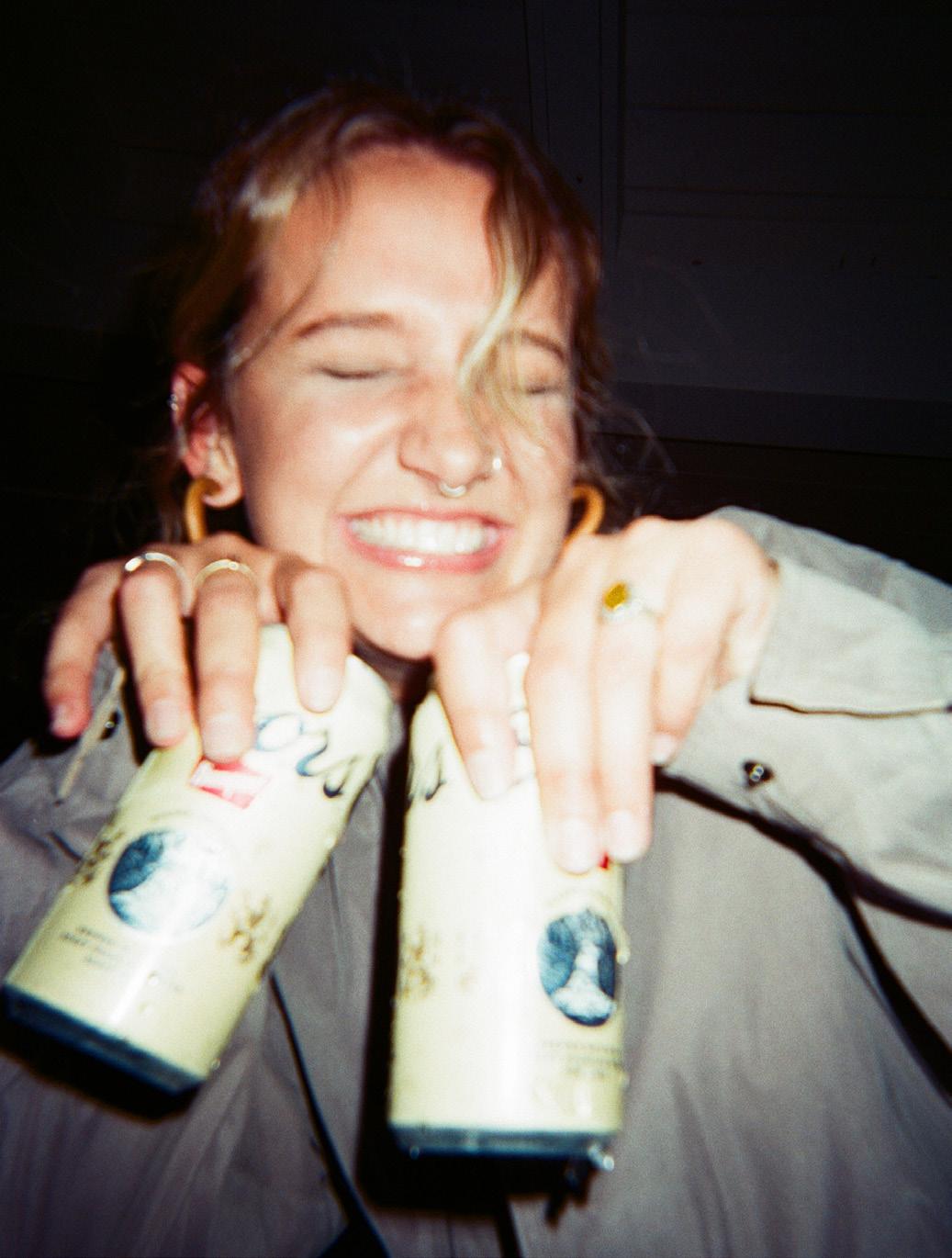
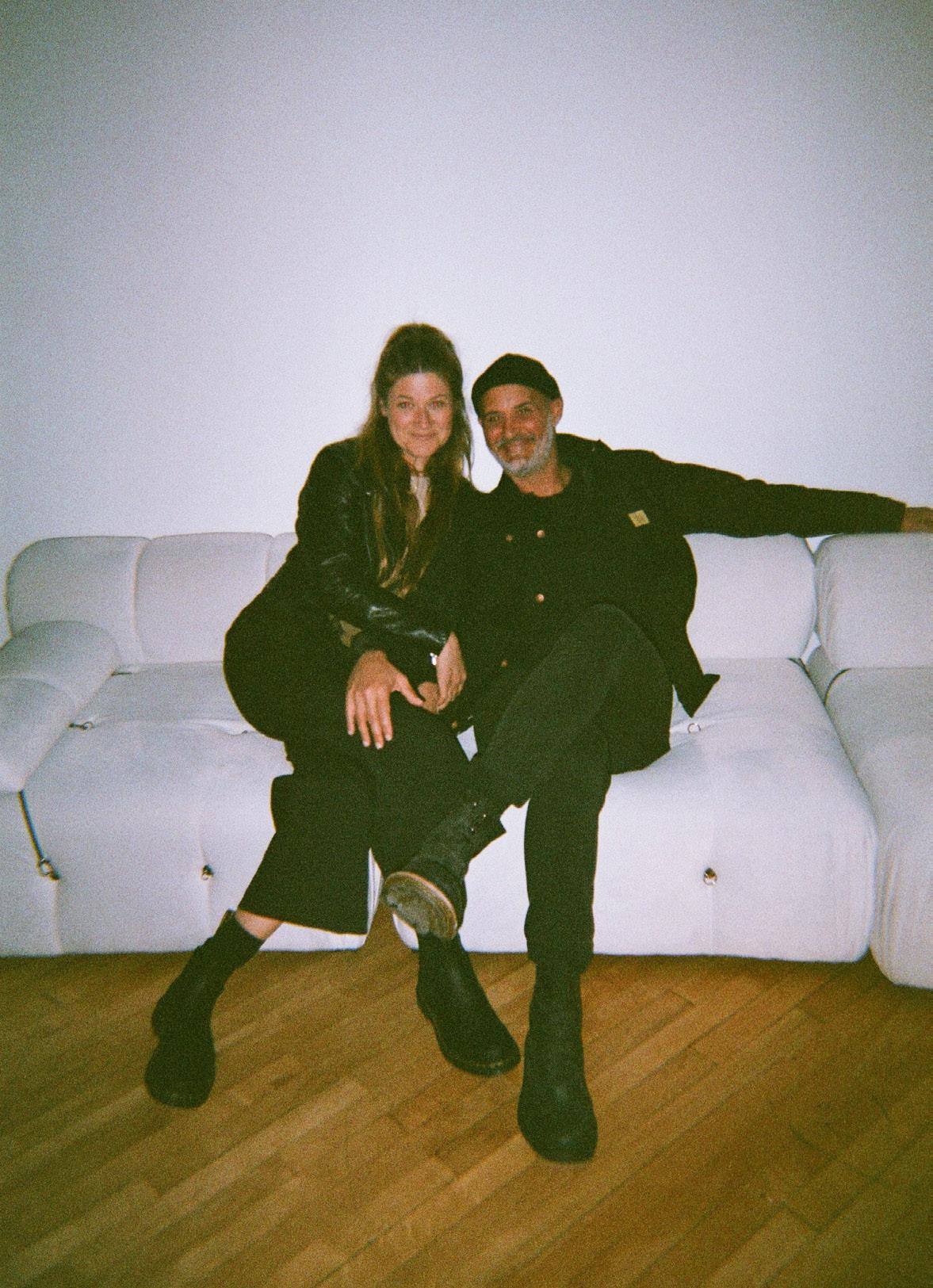
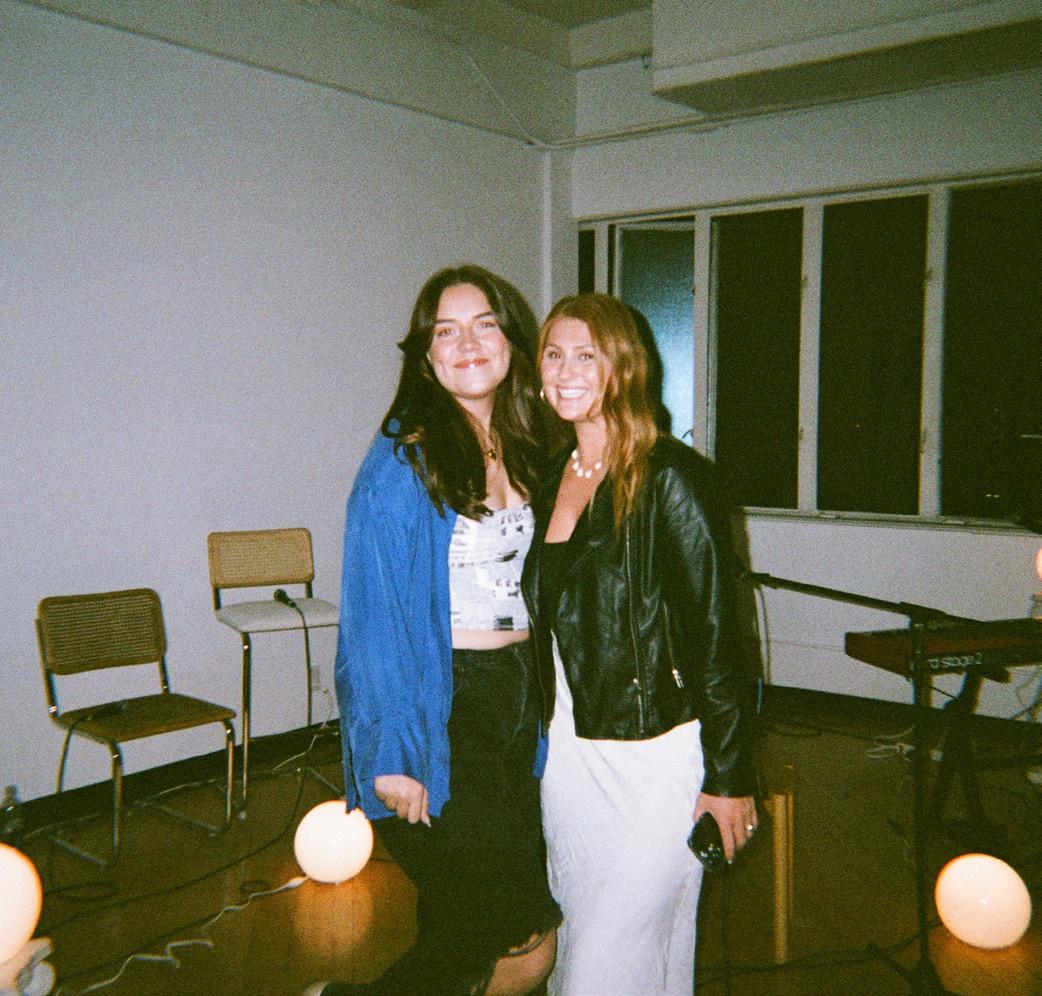
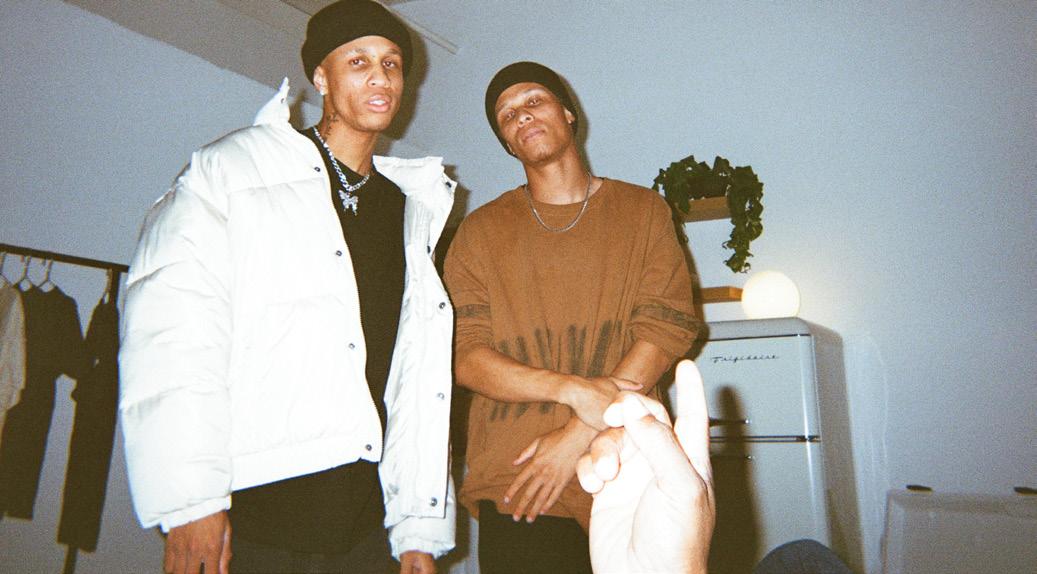


023
Do you know those moments that you can only describe as serendipitous or divine? Well, we had that feeling when Shua, featured in Issue 002, reached out, asking if we’d partner with him to celebrate and create an experience for his upcoming releases.
Of course, we jumped at the chance to get to work once again with the creative human that is Shua Randle, and speaking of serendipity, while on the phone with him to talk through a space for his intimate event, a space immediately came to mind.
That space was Studio Casually.
Studio Casually is a newly-opened, beautifully minimalistic, loftlike photo studio and event space in Downtown San Diego, owned by, none other than Issue 003 feature Kate Gookin.
Shortly after reaching out to Kate, we took a visit to her almost completed space, and before we knew it, we were moving forward with planning a night of music and community.
The worlds of two Visible features collided; it was pretty much our ultimate dream.
So, we planned it, and the evening of the event, November 3rd, came quicker than we could have imagined, but let me tell you, this event was practically perfect.
Shua’s heart for the night was to bring awareness and support to his current creative endeavors while also shouting the names of his collaborators and loved ones from the rooftops. And with orbs of ambient lighting filling the room, that’s exactly what happened. Community happened.
The night was kicked off by a perfectly abrupt sonic experience featuring Shua, his friend, Marcus, on keys, and a three-part vocal ensemble to back him up that included the talent of Amaris Chambers, Monique Harris, and Shelby Watson. The group of five jumped straight into the first of a handful of new songs that haven’t even been recorded yet, and you could feel the joy and comfort radiating throughout the entirety of the intimately-sized crowd as they swayed back and forth, jumping in on some gang vocals from time to time.
After a stunning performance from the band, we moved on to the second part of the evening, the listening experience of Shua’s soon-to-be-released EP, fixmyselftodeath.
We all just sat and took it all in, and after the last song, we jumped into Question and Response time with Shua for any questions people might have about the songs we all just experienced together.
The night ended with a surprise demo track being played by Shua, and still, we had a couple dozen people stick around just to spend time talking together in the space so perfectly curated for connection.
A favorite part of the evening was that instead of having our team document it, the guests of the night were provided disposable film cameras in order to help us remember that night through the eyes of each person who picked one up and snapped a shot. Thanks for being a part of documenting moments that matter.
024
This is why we do what we do. Creating space and environments for people to find safety that thought they would never experience, and doing it in a way that is refreshing and purposeful.
Go out there, be your best, and make a friend or two. Don’t forget the beauty of real and raw connection in a world that’s doing all it can to disconnect you from everyone and everything else.
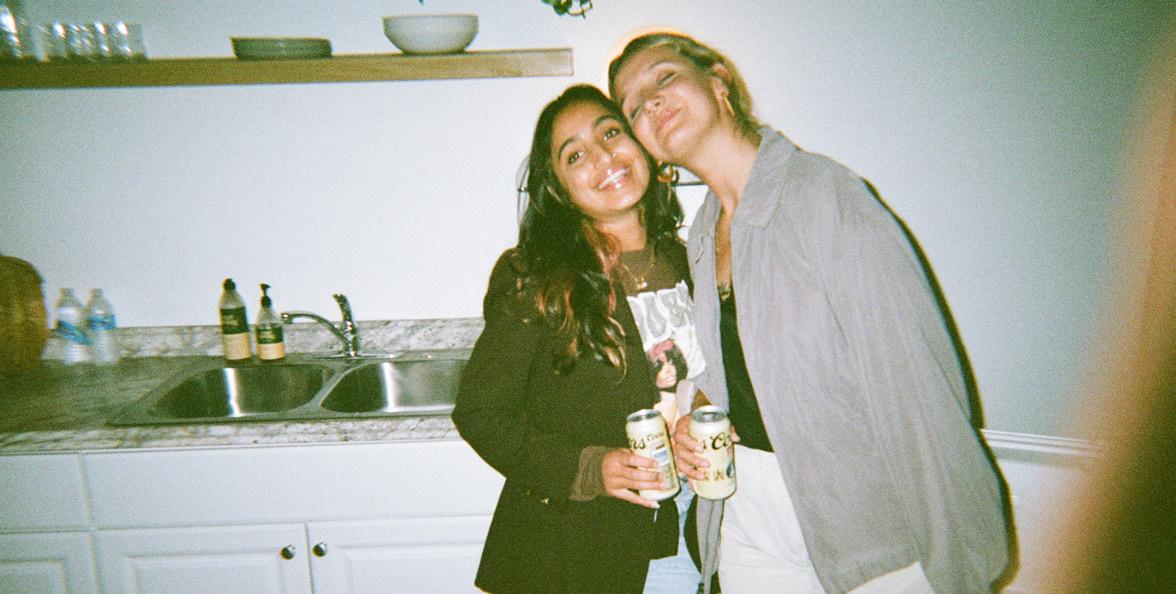
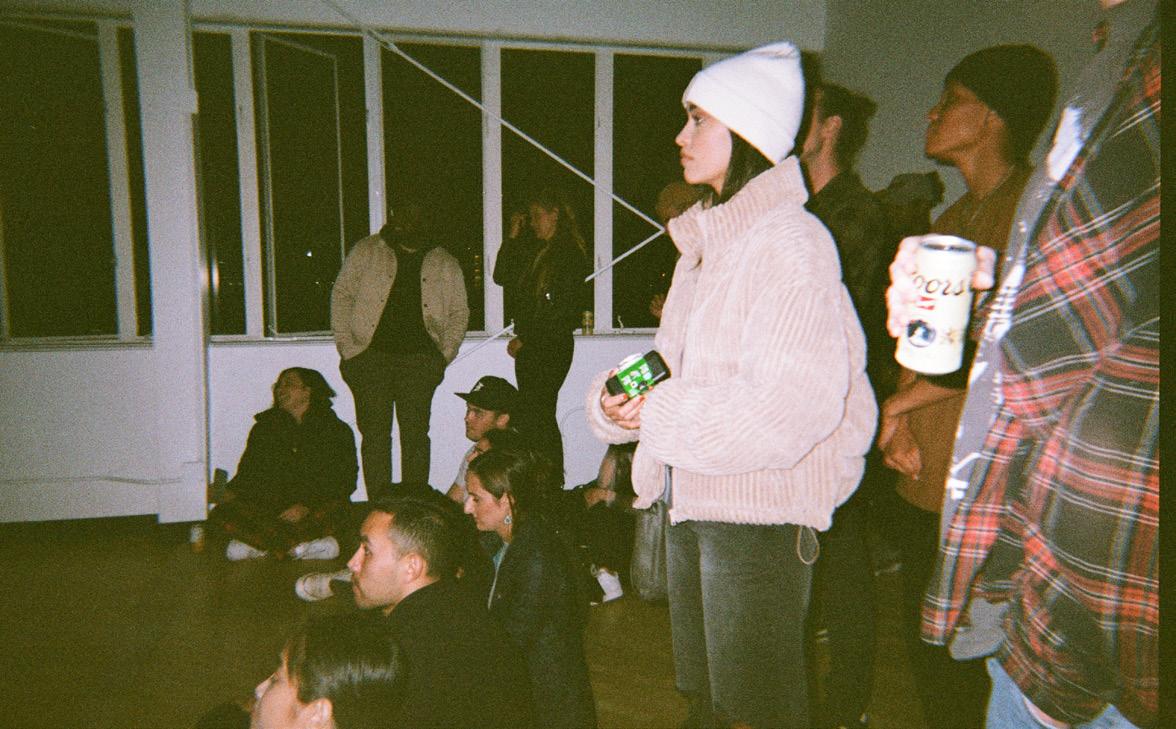

Follow Shua Instagram | shuatheshua Listen to Shua’s music on all streaming platforms.
Follow Studio Casually Instagram | @studio.casually
025
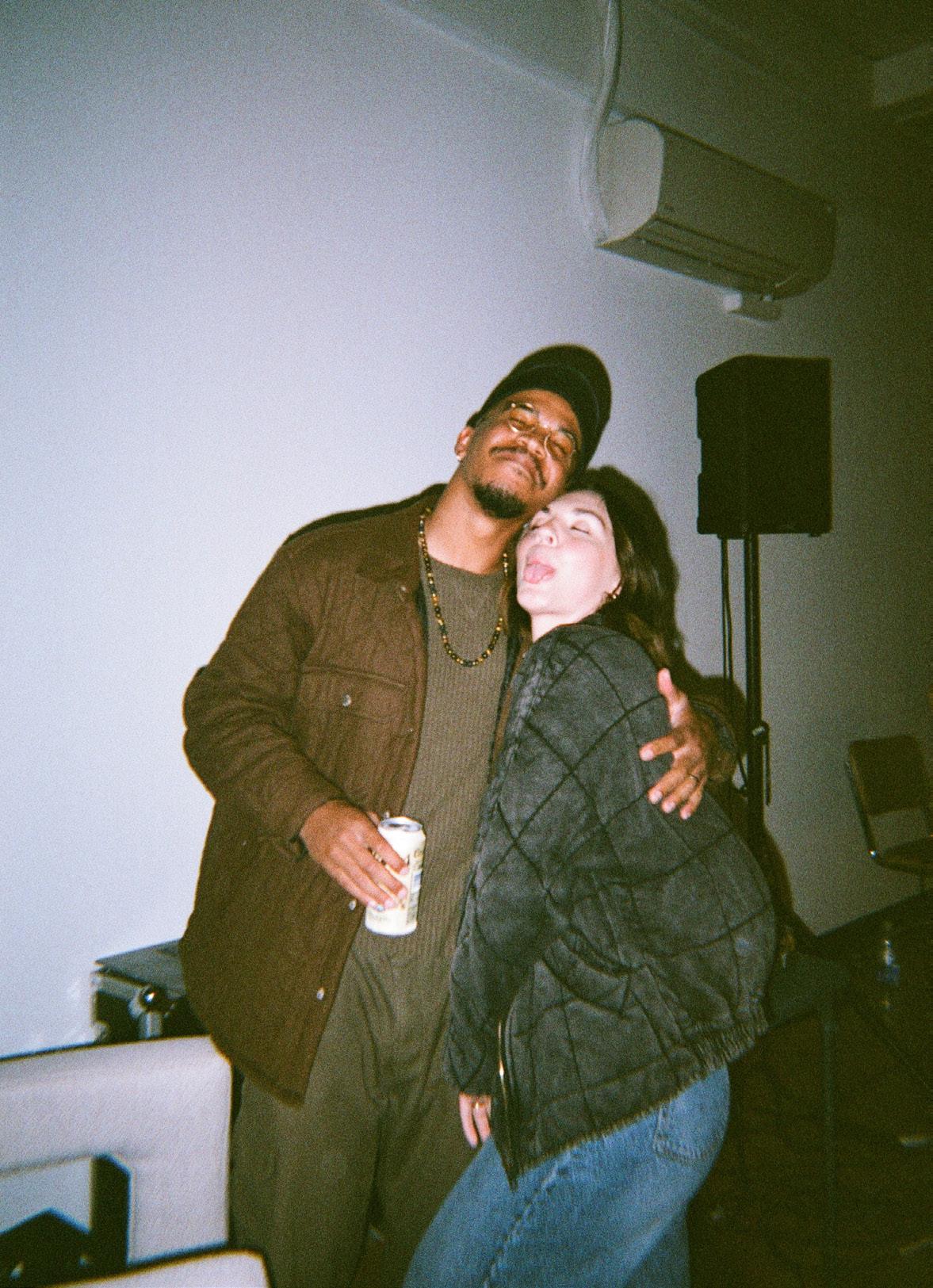

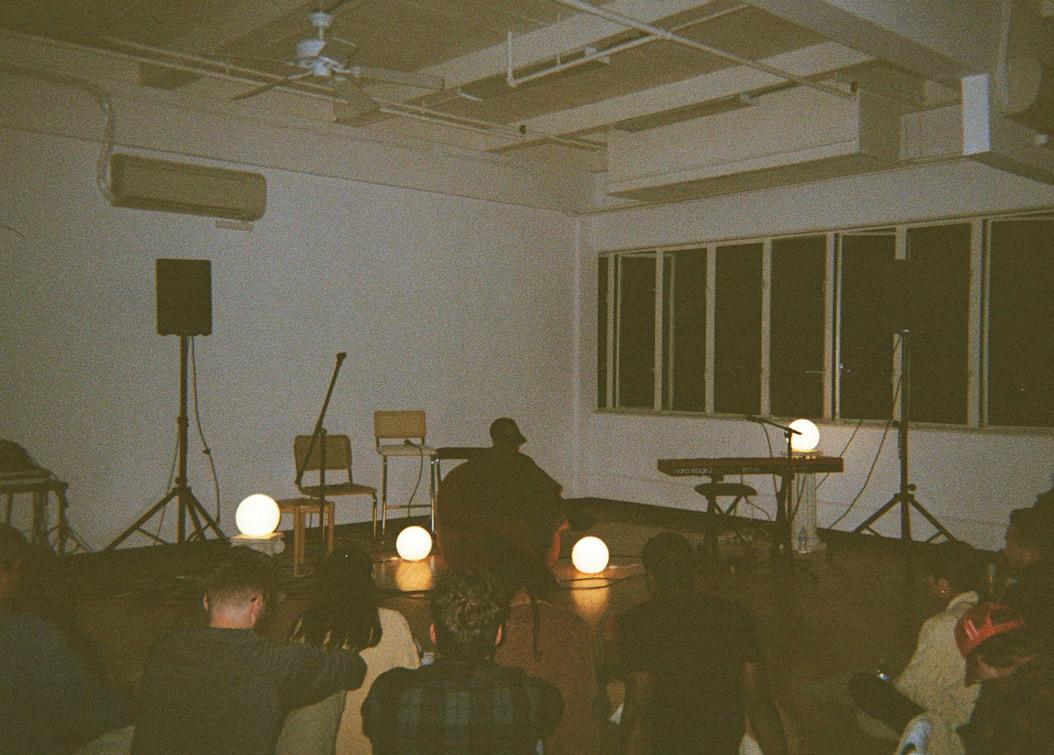



026
COMMON STRANGERS
FEATURING ANAHI GUTIERREZ
Written by Des Dare Barragan
Turning twenty-two this December, Anahi Gutierrez is a San Diego native working as a county librarian (yes, so cool!) and leading worship at the Rock Church.

The Gutierrez family transitioned to the Rock in 2009 after unforeseen hardships at their previous church, where Anahi’s parents were employed. Her parents had been sent to Arizona to head a church plant that quickly fell apart. After funding was pulled, Anahi’s parents were let go, and their family returned to San Diego, a situation she’d later learn triggered heavy anxiety and depression in her father.
Upon their return, Anahi’s mom passionately encouraged her to get involved with singing in the Rock Church kid’s ministry. By age thirteen, Anahi began leading worship in the youth ministry.
Coming from a sheltered upbringing when it came to sexuality, it was also at age thirteen that Anahi’s curiosity about her body began, and she quickly found herself addicted to porn. At an age already filled with bodily changes and identity issues, Anahi’s selfesteem drowned, and the porn industry molded how she viewed love, affection, and intimacy.
“I can vividly remember that that was the first encounter that I had with mental illness, and I really struggled. Because of the porn addiction and because of the fact that I was so depressed, I felt really disgusted with myself.”
Anahi had suicidal thoughts for the first time, and it frightened her. She chose to tell her parents about the porn addiction and thoughts of shame that led her to contemplate ending her life. “They were very understanding, but I don’t think that they knew how to deal with it. We’re Mexican too, and in Mexican culture, mental illness is such a taboo thing.”
Anahi felt heard and supported by her loving parents but having yet to learn about her dad’s history with mental health, she felt their understanding was limited. Anahi continued being very involved in school and church, but the depression was not addressed, and she was left feeling numb.
“I WAS STILL VERY DEPRESSED. IT JUST NEVER LEFT ME, IT HAD ATTACHED ITSELF TO ME.”
About three years later, Anahi’s mom started having very serious health issues, including absence seizures, which are a type of seizure characterized by a brief loss and return of consciousness. Anahi went into her senior year of high school with the news that her mom had a brain tumor. In surgery to remove the tumor, Anahi’s mom had a stroke that left her permanently disabled, unable to speak or walk on her own.
Having always been very close with her mom, she continues to be a major part of why Anahi leads worship. “It was almost like she knew that things were not going to be super easy as I was growing up. It was almost like her way of preparing my heart for that. Yes, I’m leading you guys into this space with God, but I feel like I’m also bringing myself there because I need it just as much as you guys do.”
The news of her mom’s health coincided with a two-year-long toxic relationship. Her ex-boyfriend’s accusations and behavior ate away at the remnants of Anahi’s self-esteem and identity. She was repeatedly told she was annoying, she’d never be good enough, and that she’d never find anyone who would deal with all she’s endured. She believed it.
In February 2021, Anahi became so depressed that she had a mental breakdown. Suicide was no longer just a contemplation. Rather, she found herself expressing to her dad that she was going to act on those feelings.
Anahi gave us a window into some of her thoughts that night: “I don’t know what’s going on, I don’t know how to fix this, but I’m literally going to kill myself because I can’t do this anymore, I feel like I’m nothing.”
With the help of her family and a trusted friend, Anahi agreed to be admitted to a mental hospital, where she was diagnosed with Major Depressive Disorder. She tells us that the diagnosis was a relief in ways because it affirmed that something was actually wrong. She didn’t make it up, and she wasn’t crazy. The depression was real.
Anahi explains that in the Christian community, she’s felt unable to share major struggles with depression, anxiety, or self-esteem without her faith in God being questioned.
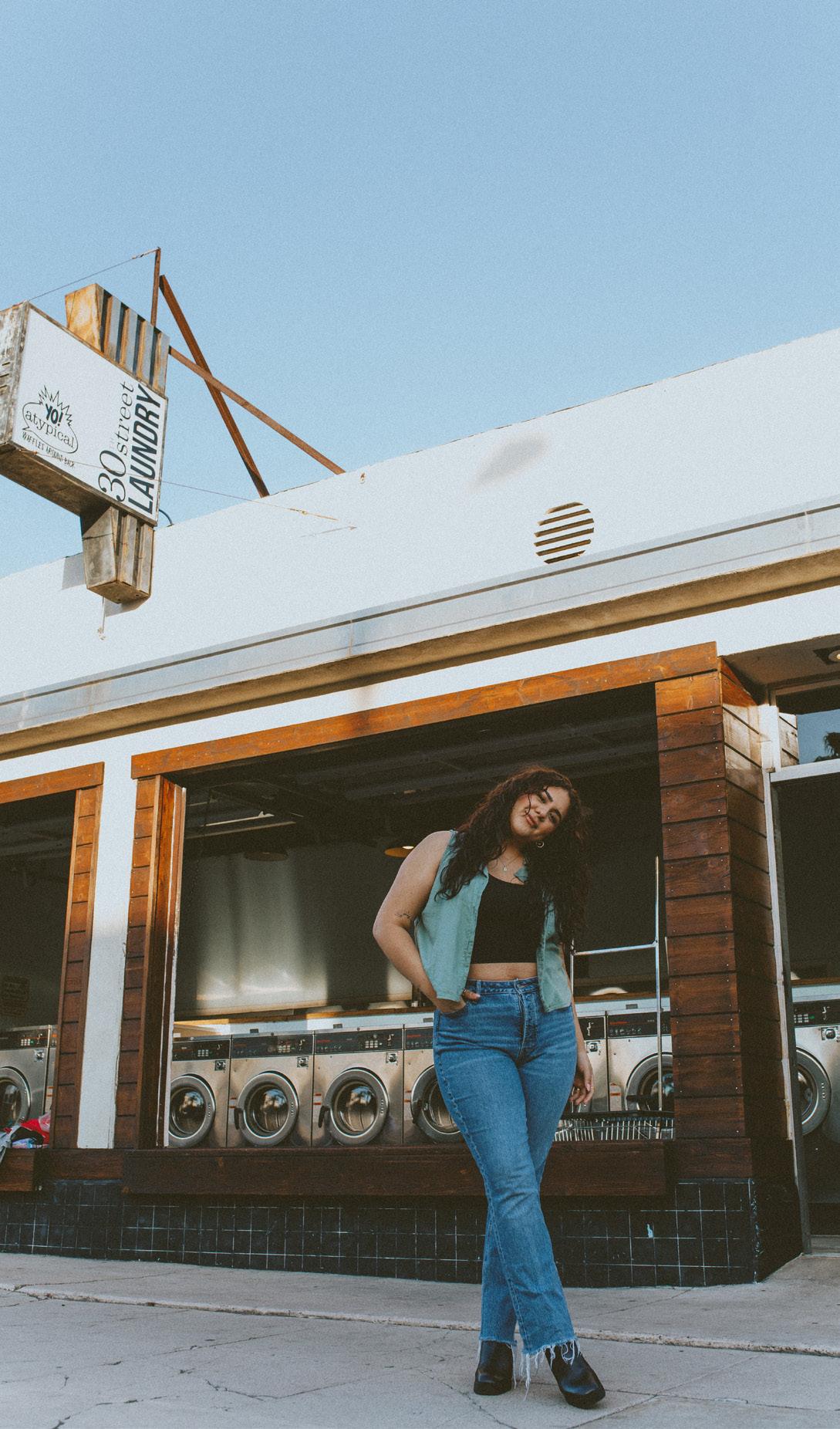
For Anahi, dealing with depression isn’t a question of faith or lack of surrender, it’s needing the tools to weather tough experiences and to process all she feels and lives through.
When asked about her relationship with her emotions, Anahi responded, “I would refuse myself the ability to have them (emotions) out of fear that what happened last February would happen, but I didn’t realize how harmful that really was.” Believing the echoes of her ex-boyfriend saying, “You’re annoying and a burden to others,” led to self-hatred and viewing her emotions as an annoyance. She resented their existence, not only because of the comments of others but also because of her deep desire to stay strong for those around her.
In going to therapy and talking to trusted people, Anahi’s becoming reacquainted with unconditional love and is able to shut down lies and refocus her mind on the truth. She still struggles with depression and seeing her emotions as a burden, but she is allowing herself to feel and express them.
028
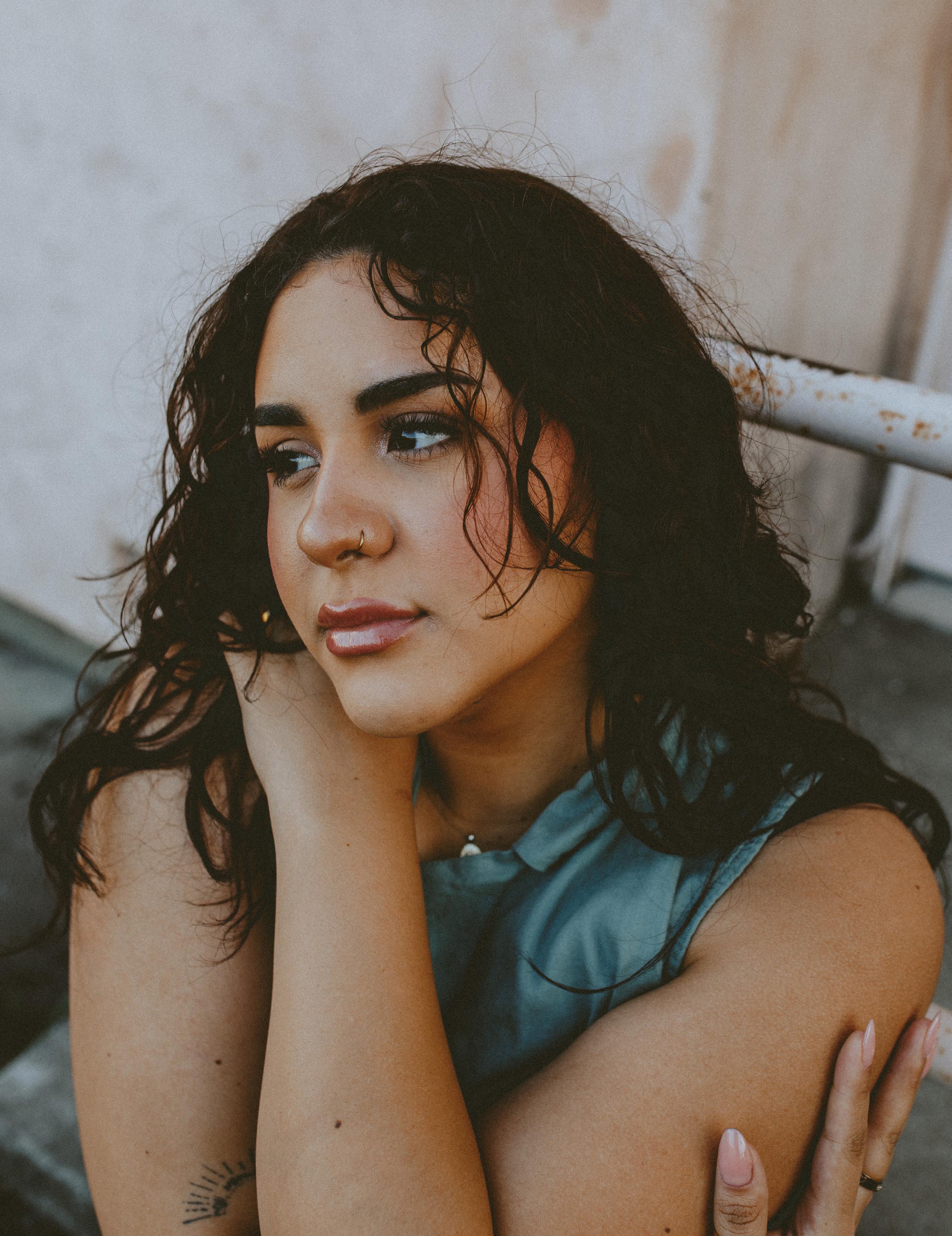
In a recount of the night she found out about her mom’s stroke, Anahi explains how she blocked everything out and felt that if she could keep some sort of composure, it would all be fine, she’d be able to protect her sister from the pain and support her dad in the process. It wasn’t until the drive to the hospital that Anahi silently let a tear or two fall, but that was all she let herself have. It wasn’t until weeks later she found herself crying for hours alone. Even then, she hid her tears from her sister, in hopes of keeping her strong front. Anahi’s character is to protect and care for those she loves, but she’s learning how expressing her emotions helps her to heal and signals others to help her too.
We often hear the phrase “working on our mental health,” but this can seem quite vague. Anahi describes that for her, this looks like going to therapy to learn ways to stay grounded, meditation and journaling, exercise and eating well, and pouring into the things that she loves the most. Anahi describes how in depression, you lose interest in the things you love. She is grateful for people who didn’t let her quit singing because if she would’ve stopped, she may have never returned. Leading worship has played an integral role in returning her to the truth of who God is and who Anahi is.
When asked for something to leave our readers with, Anahi says, “It’s okay for crappy things to happen, it’s okay to be upset at them, and it’s okay to struggle. But not to let yourself sit in that because one thing I’ve realized is that life is so worth it in the end and that things are temporary. That really helps me to move on from things–this will pass–and in a few years, it will not matter as much as it does now. That’s such a huge comfort.
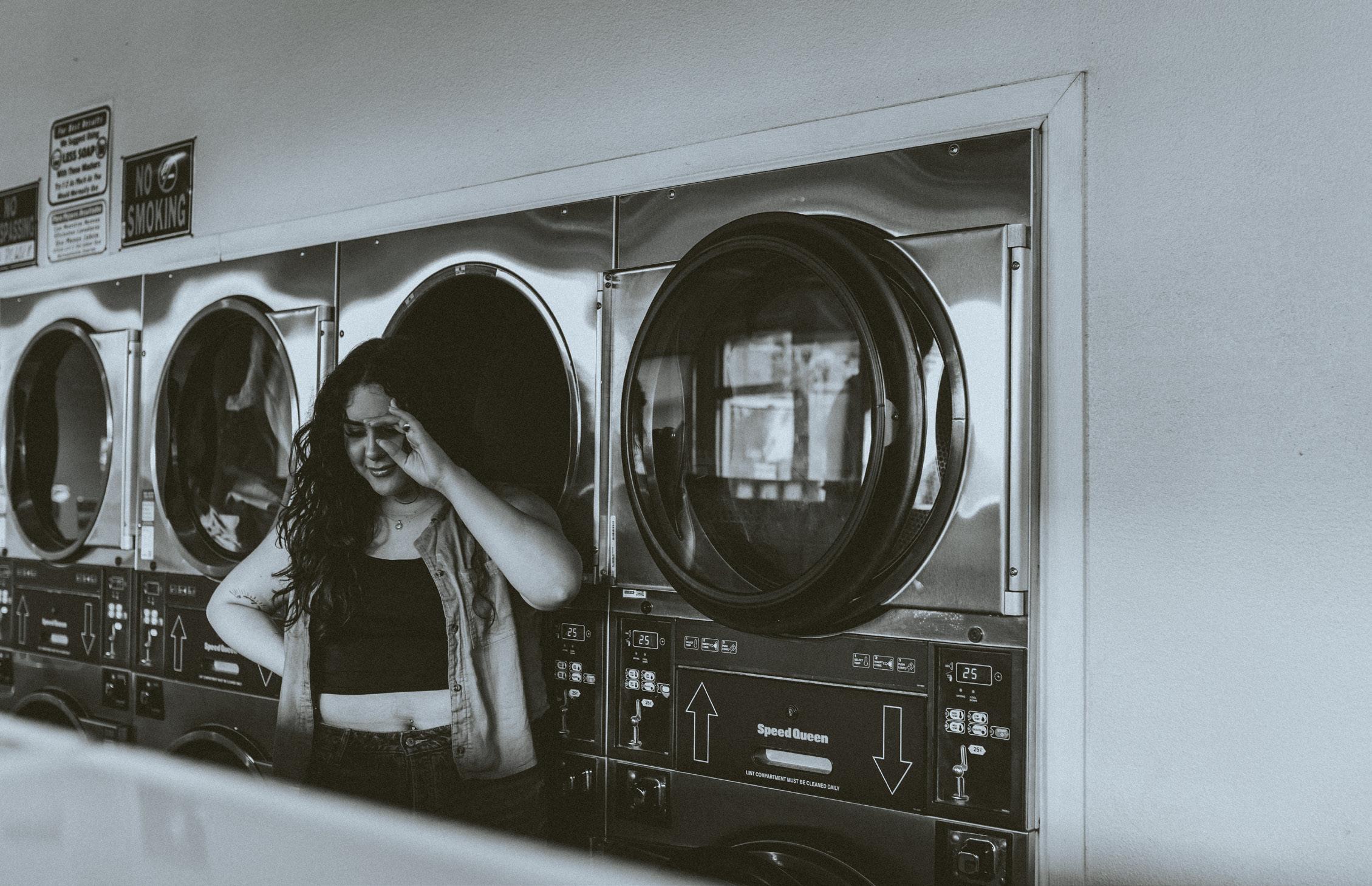
When you’re a teenager, everything feels so final. Thank God that things are temporary, and thank God that emotions and situations don’t last forever. Maybe not circumstances, but you yourself will move forward, and things will get better for you.”
Follow Anahi Instagram | @anahigutierrezz
030
TO THE TABLE
FEATURING CHRIS YERIKIAN & VALERIE URRUTIA of SURJE COFFEE CO.
 Written by Des Dare Barragan
Written by Des Dare Barragan
Meet Chris Yerikian and Valerie Urrutia, co-founders of Surje Coffee Co. Surje is a mobile coffee cart serving home-roasted beans, coffee apparel, and bookings for private events. Pronounced “surge,” the name is a play on the Armenian word for coffee, an introduction attributed to the couple’s shared history of immigration.
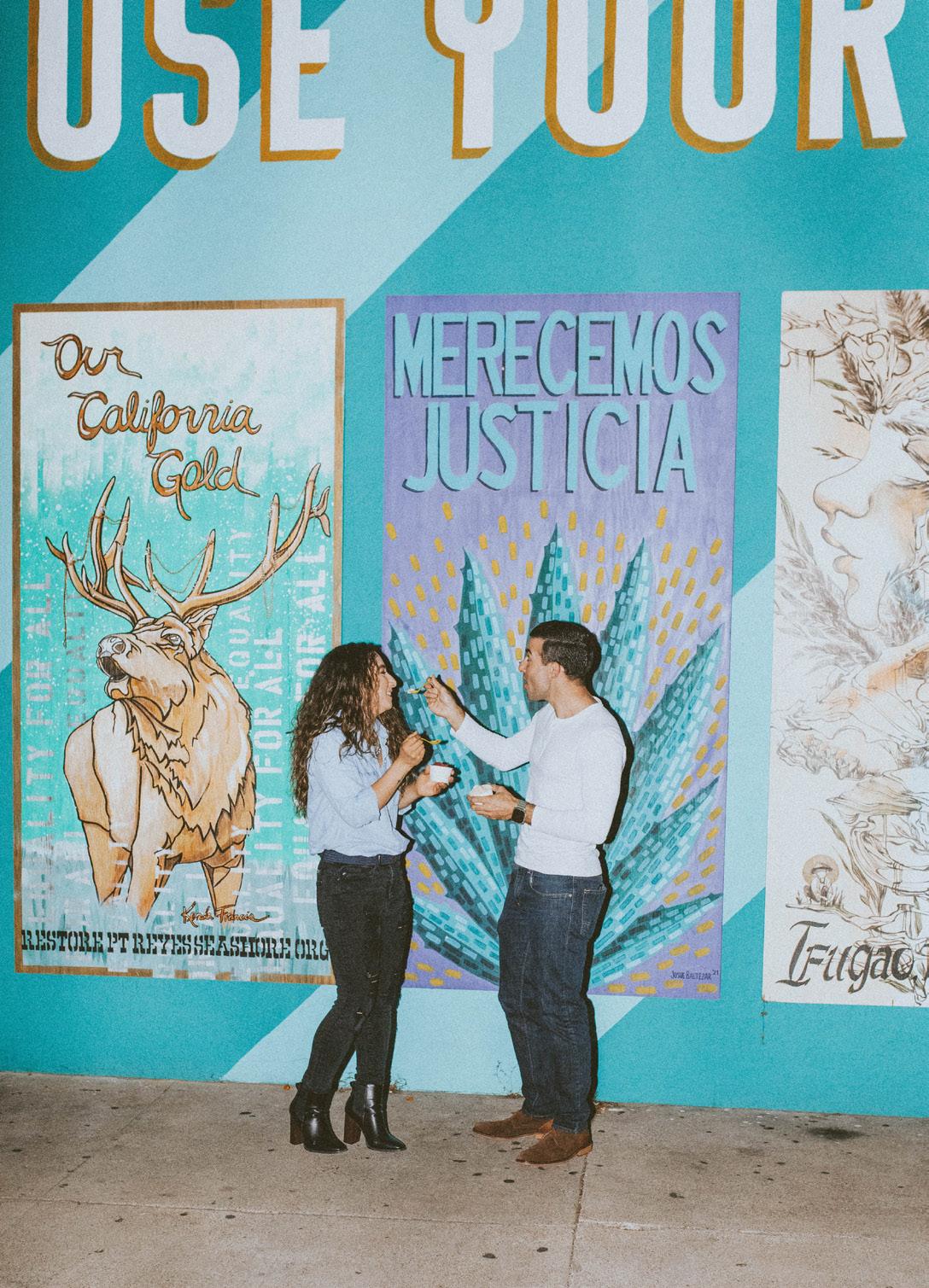
After the Armenian genocide in WW1, Chris’ family emigrated from Armenia to Lebanon, where his parents were born. The ongoing Lebanese Civil War caused Chris’ parents to flee to the US, where they led simple lives. His father was a foundry worker by trade, and his mother found a profession in retail. Chris landed some stage acting and modeling gigs in high school and then began working in the movie theater industry, where he moved his way up to management. After ten years and three changes to his college major, Chris championed a degree in Occupational and Environmental Health, worked years in the food distribution supply chain, and now has a career in consulting, work comp, and insurance. Coffee had yet to make it onto Chris’ resume, but it had always been in his life.
“Family would show up at 9 o’clock at night, and we’d have coffee. That was how you hosted,” states Chris.
Growing up in the rough LA area of Echo Park - Silver Lake, Chris witnessed gentrification firsthand. As hipster culture grew, more coffee shops opened, and his love for coffee as an experience was born. It’s no surprise that coffee was something he and Val bonded over as they started dating.
Valerie’s parents migrated from Mexico at a fairly young age and adopted a mix of Mexican and American cultures. It has been Val’s journey to dive deeper into her Mexican culture through food and drinks, travel, and research. Val’s parents were entrepreneurs who started their own aerospace manufacturing business and involved their children in everything from cleaning the machines to maintaining the business. Val earned her bachelor’s degree in Social Ecology and completed a master’s program in Demographic and Social Analysis at UC Irvine. She fell into a career in Market Research and landed her first job, post-grad, working for the NFL Network. She eventually left that job and found herself in LA, seeking purpose and someone to share life with.
Fast forward a few months into dating, Chris and Val did a staycation in downtown San Diego. “I remember telling her I never want to leave LA, but if I had to, I think I would want to live in San Diego.” Two months later, Chris was offered a job in San Diego that he never even applied for! Chris moved for the job in 2019, and the couple dated long-distance for a year. It was during this time that they conceptualized Surje Coffee and drafted a business plan.
What did this business look like for people who’d never worked with coffee? “It was really exciting because it was something new. It was a lot of reading books, watching YouTube, listening to a coffee podcast,” says Val. Chris adds, “The part we didn’t know too much about was the actual coffee itself, the science of roasting and barista skills. That, we didn’t understand, but we knew the experience part of the business. Coffee was more like the medium to accomplish the experience.”
“SOMETIMES WE’LL BE IN THE KITCHEN, AND WE’LL STOP AND BE LIKE, ‘BABE, WE HAVE A REAL BUSINESS!’”
032
The couple notes how popular “fast coffee” is in the States, but they wanted to create a different experience, something they encountered on a visit to Italy. The same experience Chris grew up with and the same interaction you see within Mexican culture.


“IT’S SLOW COFFEE,” STATES CHRIS.
Val expands, “Our vision is having it like a real pillar of the community, where people come, you network with each other, somehow you meet people who are doing work within the community and adding to that. We’re always thinking about what value we can provide and how we can bridge the gaps for what’s missing.” A gap that Chris and Val see in our city today is the lack of people of color leading in the coffee industry. “For us, it was figuring out a way to tie in the coffee, the community, and our cultures, and really highlighting that.”
Their Armenian and Mexican cultures have been creatively woven into all aspects of the Surje brand. From the subtle choice in colors and design of their logo to the outright Spanish language used as their slogan.
Intentionality is woven throughout how Val and Chris maintain their business and their relationship. “The challenge is being a couple in a relationship, starting a business. We want the same thing, but we also have different points of view and different visions of how to get there. We have a lot of debriefing meetings,” shares Val. Unafraid to question and delegate amongst each other and to others, Chris and Val value people over the business. With confidence in what they both bring to the table, it becomes easier for them to trust the capabilities of others in order to delegate with ease.
The soft launch and marketing of Surje Coffee began in March of 2021, growing hype up to the official launch on June 25, 2021. “That first night, we didn’t go to bed until like two in the morning. We were roasting all day and night.” Surje Coffee survived pandemic challenges like delayed shipping on their commercial roaster and coffee bags. With only two home-roasters pumping out one mere 12oz bag at a time, Chris and Val rocked it. They now look forward to what the future holds.
Chris and Val envision opening a coffee shop, a speakeasy, a cannabis lounge, and even a hotel wellness cafe. They aim to move from pop-ups to a coffee truck, more tasting classes, espresso cocktails, continuing to wholesale, and creating wedding packages. Val tells us their immediate next thing is a Café de Olla package, offering instant traditional Mexican coffee during the holidays!
Chris encourages our readers, “With social media, it’s become very sexy to be an entrepreneur and own a business. It can be, you just have to make sure you’re really thinking about what it is you like and what it is you want because it is hard and it is stressful running a business. If you don’t love what it is that you’re running a business about and you don’t like it, the days when it gets stressful, you’re going to get discouraged. If you love it, you’re not incentivized to slow down, you’re not sad when things go wrong because it excites you.”
033
“What has helped us continue going forward is we don’t go full throttle every day.” Val guides our readers to aim for gradual progress that will amount to success in the future.
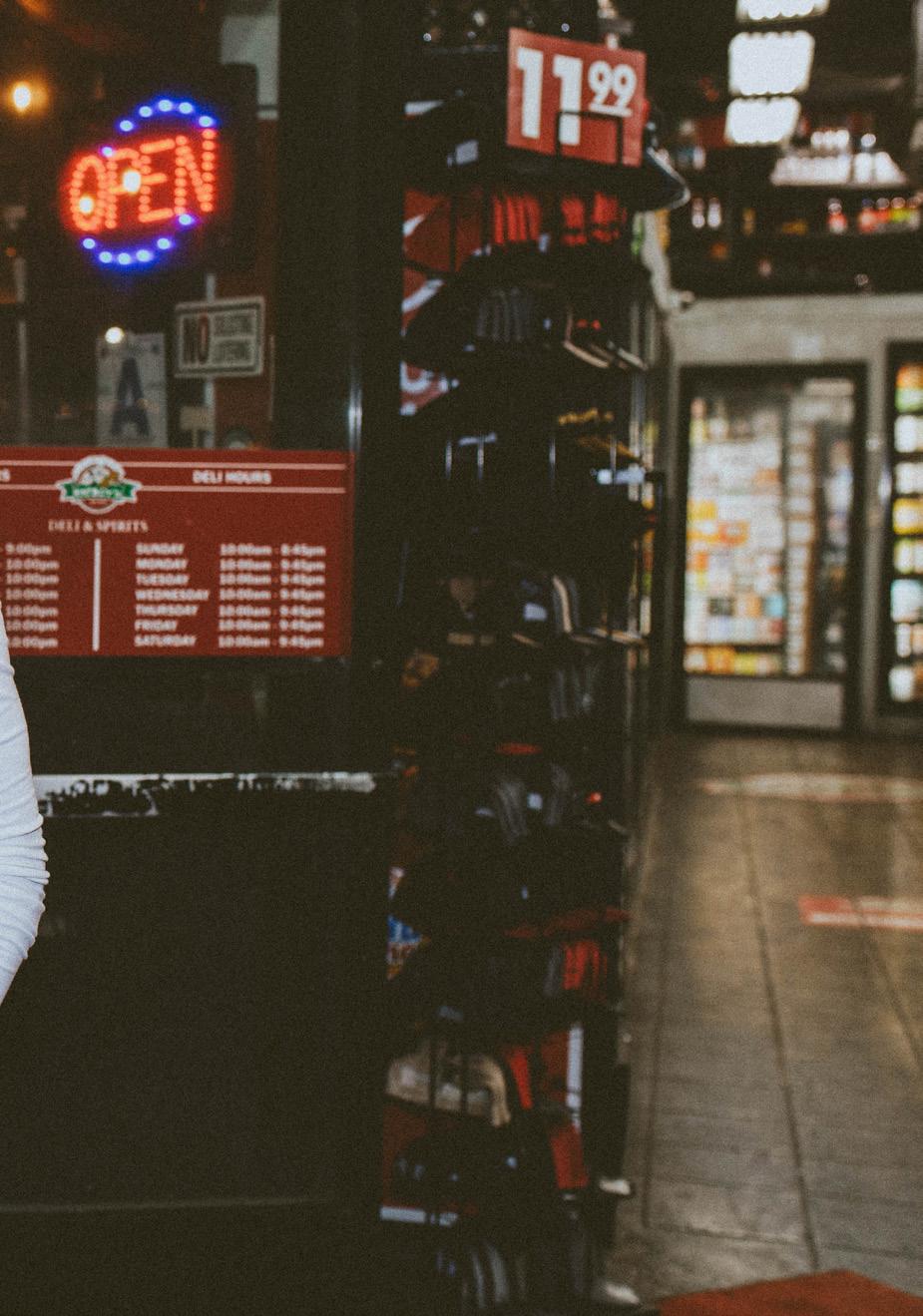

The two agreed on keeping gratitude at the center of business. They’ve been graced with tremendous support from family and friends, and it has made it all worth it.
The heart of Surje Coffee Co. and its founders is simple. They are pa’la gente, “for the people.”
Follow Surje Coffee Instagram | @surjecoffee Shop and join the Surje Coffee Club | www.surjecoffee.com
034



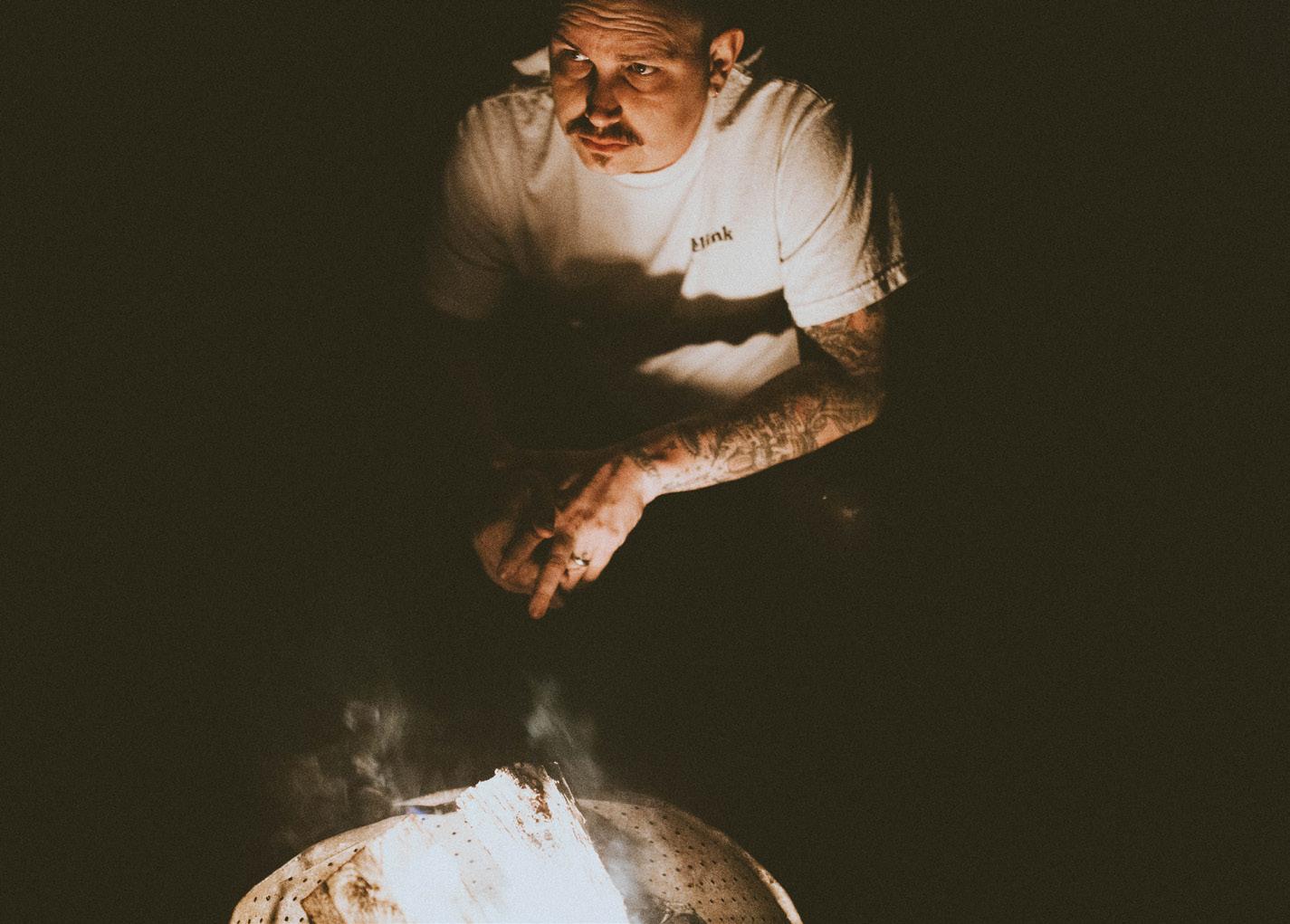
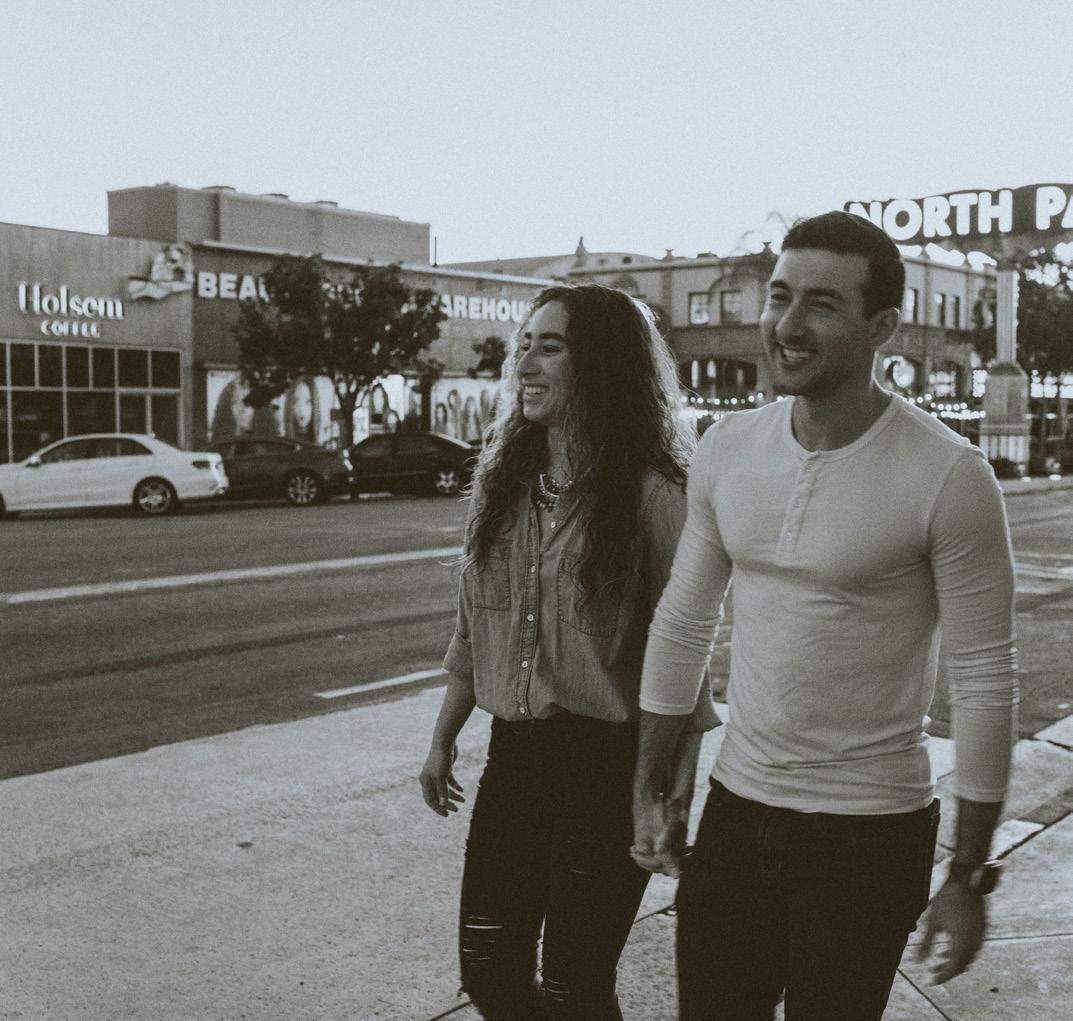


We see you, we value you, we thank you
It’s because of humans like you that Visible & its mission to rehumanize San Diego have become a reality. We hope you enjoy your Mag!
Don’t forget to use your voice to make others VISIBLE.
FIND MORE VISIBLE INFORMATION BY SCANNING HERE

064











 Written by Sammy Noelle
Written by Sammy Noelle










 Written by Sammy Noelle
Written by Sammy Noelle



















 Written by Des Dare Barragan
Written by Des Dare Barragan













